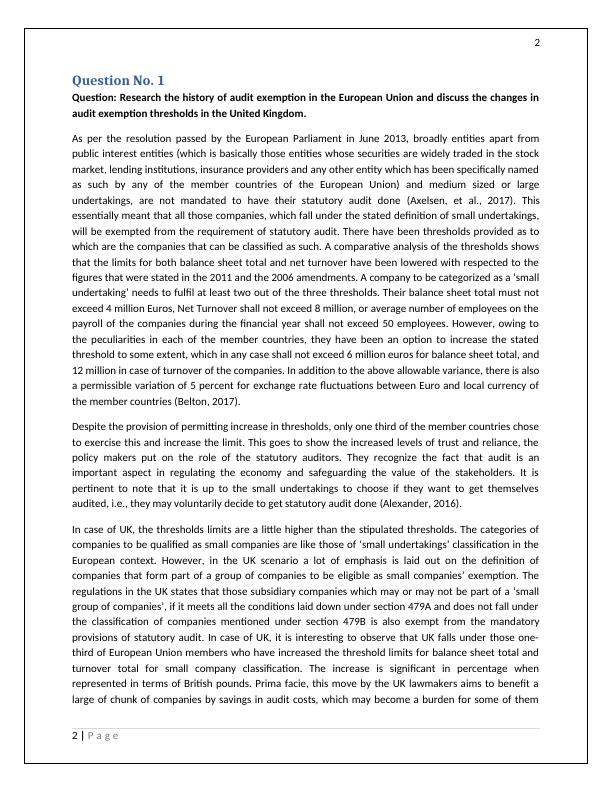History of Audit Exemption in EU and Changes in UK Thresholds
Research the history of audit exemption in the European Union and discuss the changes in audit exemption thresholds in the United Kingdom. Present arguments for and against audit exemption for small companies. Discuss if the audit exemption threshold should continue to increase.
7 Pages2712 Words490 Views
Added on 2023-06-03
About This Document
This article discusses the history of audit exemption in the European Union and changes in audit exemption thresholds in the United Kingdom. It presents arguments for and against audit exemption for small companies and explores whether the audit exemption threshold should continue to increase. The article provides insights into the impact of audit exemption on small businesses and the economy. It also highlights the importance of periodic review of audit exemption thresholds.
History of Audit Exemption in EU and Changes in UK Thresholds
Research the history of audit exemption in the European Union and discuss the changes in audit exemption thresholds in the United Kingdom. Present arguments for and against audit exemption for small companies. Discuss if the audit exemption threshold should continue to increase.
Added on 2023-06-03
ShareRelated Documents
End of preview
Want to access all the pages? Upload your documents or become a member.
Audit Exemption in EU and UK: History, Thresholds, Arguments and Future
|8
|2801
|424
Audit exemption in Europe - Assignment
|14
|2506
|84
Audit Exemptions in EU
|10
|2308
|95
Profitability of Small and Medium-Sized Enterprise in UK
|12
|4526
|37
Small and Medium-Sized Enterprises: Growth and Financial Contribution in the UK Economy
|17
|5116
|73
Types of Companies: A Quick Overview
|10
|2889
|186



